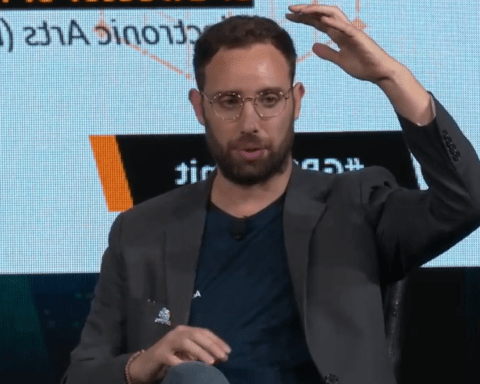With about 652 million shares outstanding, the reference price indicates that Roblox’s market capitalization could be as much as $29.3 billion.
For one, Roblox Corp. is seeking to transform from a video game beloved by tweens and teens into a social meeting place for kids and adults alike.
Roblox will trade Wednesday on the NYSE under the symbol RBLX. Existing stockholders have registered about 199 million shares for sale, but 388.2 million shares could potentially be sold. Unlike in a traditional IPO, the company isn’t raising new capital via the offering. Instead, holders will sell stock they already own.
The game maker is planning to go public Wednesday at a price that could give the company a $30 billion market value, and needs to prove to investors that it can thrive once children are back in school full time.
The $45 reference price doesn’t mean that is where Roblox shares will begin trading. Rather, it is meant to be a guide that informs the public of recent private trading activity, according to a person familiar with the situation.
Financial disclosures offer an early preview of what’s next—and how to navigate the transition back to normalcy. Roblox warned investors last week that growth of daily active users is projected to slow in the spring to between 3% and 9%, while hours engaged on the platform may decline as much as 11%.
On Wednesday morning, the NYSE will collect buy and sell orders from broker-dealers. A designated market maker will then determine Roblox’s opening price after consulting with the company’s financial advisors.
Direct listings aren’t new but have gained attention of late. Roblox will be the fifth company to go public using this method.
Palantir Technologies (ticker: PLTR), Asana (ASAN), Slack Technologies (WORK), and Spotify Technology (SPOT) all used direct listings to make their public equity-market debuts. Companies typically don’t raise capital via direct listings, although in December, the Securities and Exchange Commission approved a rule change proposed by the NYSE that allows a company to do so.
For companies that have flown high during Covid-19 lockdowns, that’s a sobering shift. Stay-at-home stocks (Netflix Inc., Zoom Video Communications Inc., Peloton Interactive Inc.) soared through much of the pandemic with customers stuck indoors superglued to their products. Their shares are all down in recent weeks as vaccinations have accelerated.
With few exceptions, executives aren’t willing to predict what the waning days of the virus will look like. “Please note the impact and extent of the Covid-19 pandemic and people returning to in-person contact still remain largely unknown,” Kelly Steckelberg, the chief financial officer of Zoom, said last week.
The question is unavoidable in the games industry, which had a banner year in 2020. Roblox, a social platform that enables players to create their own quirky online games and mess around together in virtual worlds, secured a ridiculously strong hold on Generation Z. The company has said two-thirds of U.S. kids aged 9 to 12 use Roblox, which makes it uniquely vulnerable to tweens venturing back to classrooms and screen-free hangouts.
Roblox is still forecasting huge growth rates of more than 60% for the quarter ending March 31. But the spring will look markedly different. “We headed into 2020 with strong organic growth, which was further bolstered by social distancing restrictions,” Roblox CFO Michael Guthrie said in a recent statement. “As those restrictions ease, we expect the rates of growth in 2021 will be well below the rates in 2020.”
Gaming demand will likely plateau, but it’s unclear how much engagement will be affected, said Mat Piscatella, a video game industry analyst for NPD Group. Delays of blockbuster titles and shortages of next-generation consoles may help sustain growth whenever supply rebounds. But more significant could be how engrained the digital social habits of the last year become for adolescent Roblox addicts or older Call of Duty loyalists.
“The long-term impact of the pandemic is the rise of social gaming and the rise of communicating online,” Piscatella said. “Even when we get back to whatever the new normal is, that social stickiness is really hard to shake off.”
Roblox won’t receive any proceeds from shareholders who sell their stock. Goldman Sachs, Morgan Stanley, and Bank of America are advising Roblox on the deal.
So the biggest game publishers are doubling down on community building, creating products.






